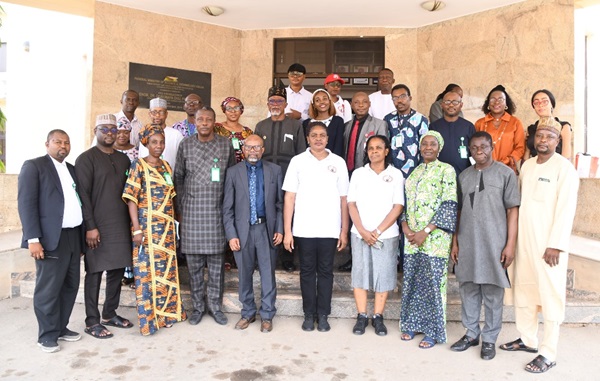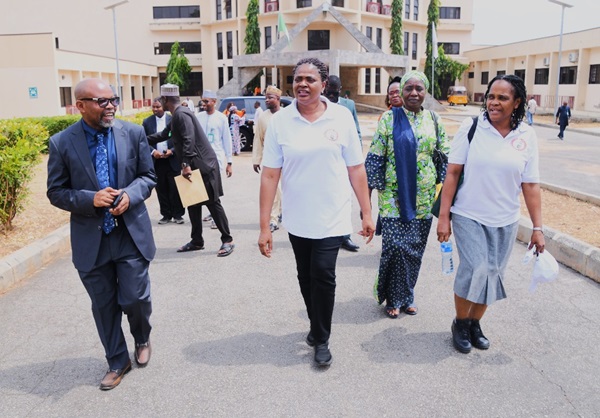
The permanent secretary of the Federal Ministry of Innovation, Science and Technology, Esuabana Nko-Asanye has urged the Sheda Science and Technology Complex (SHESTCO) and Nigerian researchers to strengthen their capacity in emerging technologies such as gene editing, artificial intelligence, robotics and related fields to drive national development.
Nko-Asanye made this call during a courtesy visit to SHESTCO’s management team at its headquarters in Kwali Area Council, Abuja. She emphasised the critical importance of Nigerian researchers not only adopting but also mastering and institutionalising these transformative technologies for the country’s growth and self-reliance.
She expressed particular interest in the potential of genome editing, stressing that Nigeria must not rely on foreign countries like China, India, or South Africa to lead in these cutting-edge fields. According to her, if Nigeria depends on others, it risks paying high costs in revenue and taxes for technologies that could be domestically developed and even exported to other African nations.
“We must look into emerging technologies such as gene editing, genetics, DNA and chromosomes. Genome editing is a remarkable innovation, and I do not want other countries to come here to do it for us. If they do, they will take the credit and the revenue while we remain dependent. Instead, our own experts – directors of biology, physics, chemistry and mathematics – must step up advocacy and awareness, starting as early as kindergarten through primary and secondary education, before tertiary institutions,” she stressed.

Nko-Asanye explained that building local capacity from the grassroots would create widespread understanding and interest in advanced technologies. She envisioned a future where Nigeria, having developed its competencies, could provide technological solutions not only domestically but also to neighbouring West African countries.
She further emphasised the need for Nigeria to expand its focus to other frontier areas, including artificial intelligence, the Internet of Things (IoT) and robotics, advocating for the Ministry to increase knowledge and improve strategies to master these domains. By doing so, she noted, Nigeria could commercialise its advancements and contribute meaningfully to the technological progress of the region.
Welcoming the permanent secretary, the director-general of SHESTCO, Prof. Paul Onyenekwe expressed his delight at the visit and reaffirmed the agency’s dedication to its mandate. He explained that SHESTCO, established in 1993 by the Federal Government, operates as a multidisciplinary research and development centre aimed at creating facilities for the effective application of science and technology in Nigeria.
Onyenekwe highlighted that one of the agency’s core responsibilities is to provide structured manpower training to address the country’s growing demand for expertise in high-technology sectors. He assured the Permanent Secretary that SHESTCO remains committed to fulfilling its objectives and will continue to work diligently to advance Nigeria’s technological capabilities.
He concluded by reaffirming SHESTCO’s determination to play a pivotal role in Nigeria’s pursuit of technological self-reliance and innovation-driven growth, promising that the agency would persist in its efforts to realise the ministry’s vision for national development through science and technology.


